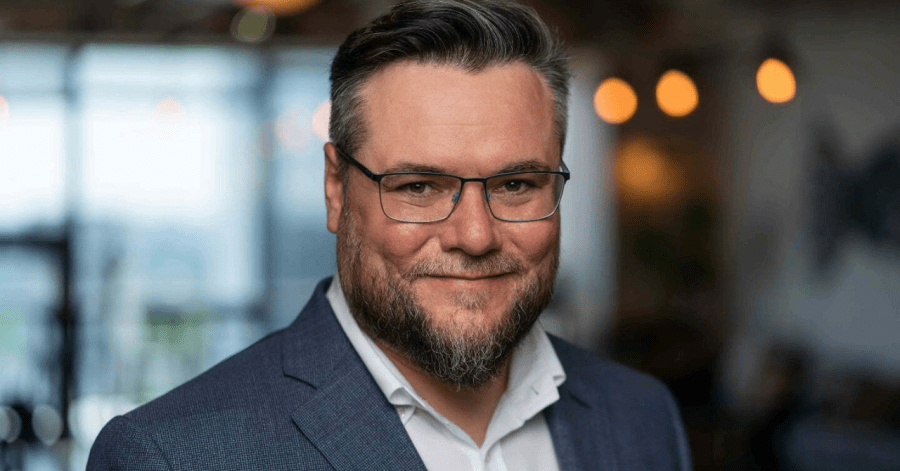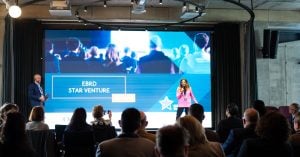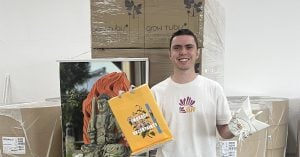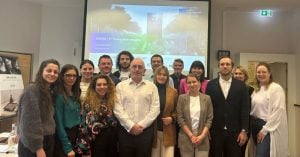Coming from a family with a three generation tradition in forestry management in Bucovina, Florin Irimescu’s first career choice came naturally. “Bucovina is the most forested area in Romania. People here have had access to forestry school from the time of the Habsburg Empire when Bucovina was a province”, he recalls. It was while holding an executive position in a forestry district, managing 20,000 square meters of forestry land, that he discovered the oldest trout fish farm in Romania. This was the inspiration for the next step in his career.
With the founding of VALEPUTNA, a brand for trout specialties, he started on a journey around food innovation. The latest milestone was the launch of a food tech startup that taps into the booming protein alternative and sushi markets. Bluana Foods makes vegan fish for sashimi, as alternatives to salmon or tuna, based on different protein sources including soy, pea, and potato, using a molecular gastronomy approach.
Aside from a unique product, Florin’s vast entrepreneurial experience and willingness to take the company through multiple startup programs recently brought Bluana’s the first prize in The Founder Institute’s Startup Investor Accelerator in Barcelona.
In this interview, Florin shares the story behind launching Bluana and developing the product, what he learned from participating in startup accelerators and competitions, and what is next for the food tech sector in the region.
The Recursive: Why did you decide to switch lanes from forestry management and enter the food sector as an entrepreneur?
Florin Irimescu, founder of Bluana Foods: I was always entrepreneurship inclined. I used to be an intrapreneur in my previous company, starting various projects. I had a company for quality system consulting, a taxi company, and a waffle business.
Managing the trout fish farm, I was amazed by the artisanship that went into growing the trout, the purity of the water, and the food. I was exposed to a fascinating world. In that period, I heard of the last calls for some European grants, one in fish farming and one in agri-tourism. I took both these opportunities.
I thought I had to bring this amazing smoked fish into the market, because it was only available from local artisans. I had the opportunity of the fund, there was a possibility to make a plant to process it, let’s do it. So, I started Vale Putna.
Six years after launch, we won six or seven international awards for taste and branding. In the meantime, I also became a chef.
What made you want to become a chef?
I always had the passion for experimentation and learning. I was totally involved in the development of the trout products in the beginning, I was working with trout and I was working with talented people. And it felt like a natural step. So, I trained to become a French chef under the Escoffier gastronomic school.
What is the story and vision behind launching Bluana Foods?
Last year, I was approached by a German company in Hamburg looking for vegan fish. I thought I could do it. Well, the product was horrible in the beginning.
Yet another opportunity arose in the form of the Black Sea Climate Accelerator, which was looking for early stage startups. To my amazement, I was selected in the finals and then into the cohort. We also received a grant, which we had to spend in two months to make an MVP. That was my ticket. It really put me into a sprint mode. At the end of the two months we obtained a completely different product.
Once we cracked the code, we wanted to build a real business and to scale it. To learn how to build an international business, we passed through the Founder Institute accelerator.
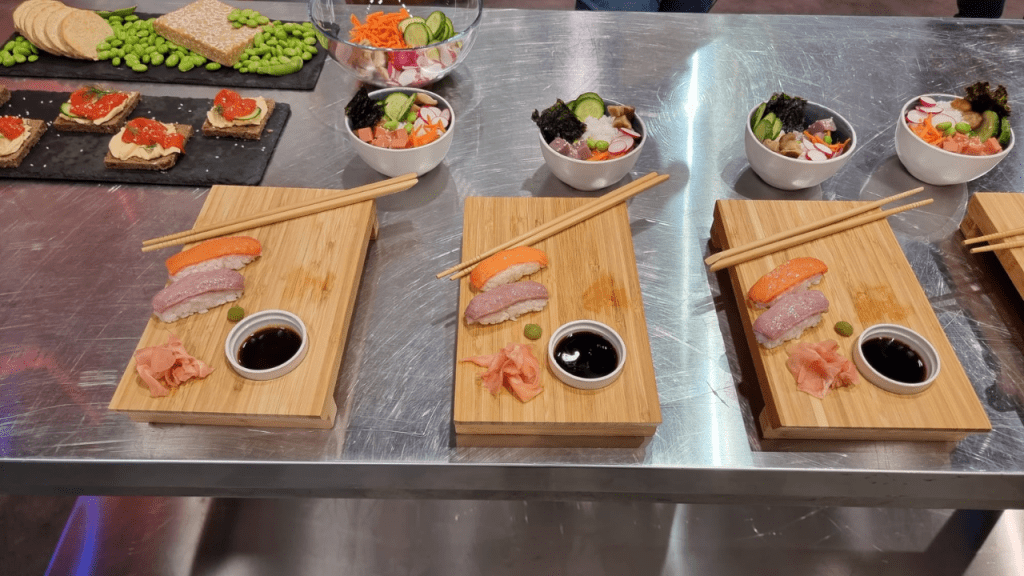
Tell us a bit about how you improved the product.
There are different parameters and different levels. We studied the market to a great extent and understood how it can be done and improved. For instance, what would make the taste, mouthfeel, or look better. The look is especially important. We have a process when we taste something: we see it , smell it, maybe touch it, and then by the time we taste it, we already have some expectations. And if they are not filled, part of the experience fails. Two days ago, we had a meeting at the Founders Institute and I had some samples. People were tasting and couldn’t tell that they weren’t eating actual salmon.
You recently won the Founder Institute’s Startup Investor Accelerator in Barcelona and received a $125K prize. What differentiated Bluana in the competition? And what are your plans with the new capital?
In one track you had 25 investors, and in the other you had startups. We started with 64 startups and after difficult and eliminatory sessions we ended up in the finals. We were the only food company there. The majority were SaaS companies, some with traction already.
I think what differentiated us was the energy. It was like a military boot camp. In those three months they challenge you to see what you are made of. It’s tiring. We had a pretty good pitch. On stage, you learn how to present and pitch with energy. Then, the overall business model, as well as the cleanness of the cap table also made a difference.
We finished the product, now we’ll go to the market and scale it.
How do you plan to distribute the product?
We will address the customer packaged goods market and HoReCa, for the sushi industry, which in some countries is booming, but also the poke bowl industry, which is coming to Europe. There is already vegan sushi in the market, with vegetables, but not vegan fish.
We plan to base the company in Romania. But we also have a company in Poland, through the MIT program there, for which we won a prize, a grant to develop the proof of concept. It will help us to finish the overall R&D. The sushi industry in Warsaw is very developed. In the future, we want to move to the West.
What have you learned across the many startup programs you participated in?
It’s a numbers game, you have to apply and to qualify. But you also have to become selective after a point, to choose the ones that are most relevant to you. You probably need a network and mentors, and maybe some financial incentives in the beginning. But you have to be careful about the equity and the valuation because it’s a long road with many milestones. In startups, it’s good to aim to have the breakeven point or the profit point as soon as possible. But until that point, you need to develop the product and go to the market.
What are the trends that you’ve noticed with investing in the food sector?
Food tech is included in the life sciences line of investment. It’s pretty new in this part of Europe. In Bulgaria, there are more food tech startups, such as Brain Foods and Cupffee, and more VCs interested in food tech than in Romania. We also have a committed investor from Bulgaria whom we may include in this round. We may have a branch there in the future.
In Israel, food tech is booming, they have like 400 food tech startups and 70 which are niched in the alternative protein space. They have many innovations such as 3D printing, seaweed farming, and protein extraction.
Overall, the interest in the sector is growing and growing across VC funds. Dedicated VCs for protein and other food innovations are starting to emerge. Moreover, the newest startup accelerator programs already ask for environmental and social impact. You already cannot go to a presentation without pointing out what SDGs you are tackling.
Where do you see the need for most investment in Romania when it comes to the agri-food sector? What should we prioritize?
We are an agricultural country. We are the second biggest soybean producers in Europe and we are not extracting soy protein. It’s a lost opportunity.
We have to begin to extract protein from everything we can because the meat protein alternative sector is only going to keep growing. We can extract protein from soy, but also from sunflower and even potatoes.
We can also look at microalgaes and macroalgaes. We are contemplating this field, you can grow it in the lab, but the technology at this point is not very scalable.
We can do more than selling grains and other commodities to other countries so that they can extract protein. We can do it here.

